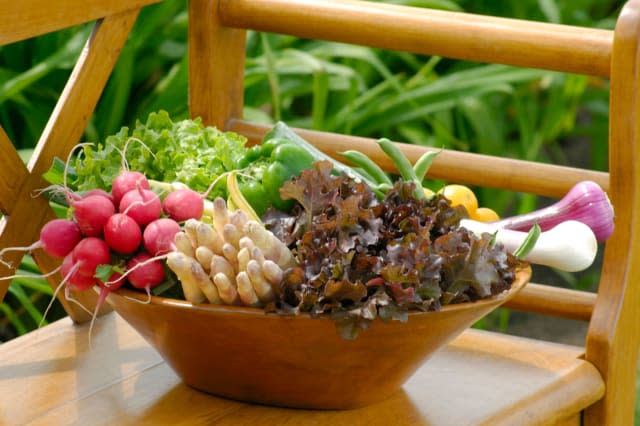What to eat when you have cancer

Many people are keen to adopt a healthy lifestyle after being diagnosed with cancer. Whether you're waiting to have treatment or currently undergoing chemotherapy or radiation, read on for our guide to eating well when you have cancer.
See also: Women and cancer: symptoms you should never ignore
See also: Men and cancer: symptoms you should never ignore
Good nutrition
Eating nutritious foods is very important when you have cancer. Your body needs enough calories and nutrients to stay strong, which includes getting enough vitamins and minerals. Eating well and taking care of yourself can help you to cope with treatment, but it's natural to lose your appetite – and sometimes you may not feel like eating anything.
Before treatment
You're likely to feel tired after undergoing cancer treatment, so make sure to stock up on healthy but easy-to-cook meals.
Nuts, yogurt, pre-chopped vegetables, tins of tuna and boil-in-the-bag or microwaveable brown rice are easy options. Make batches of healthy meals and store them in the freezer to eat when you don't want to cook. Friends and family often want to help – so accept any offers by suggesting they bring around meals.
Poor appetite
It's natural to go off food when you have cancer. The disease itself can suppress your appetite, while the side effects of treatment and medication can make you feel nauseous. At the same time, worry and fears for the future can make you not want to eat.
If you've lost your appetite, eat little and often rather than having three 'square' meals a day. Try to eat most when you feel hungriest – for many people this is in the morning. Consider having a cooked breakfast or porridge with a banana, and then a lighter lunch, for example. If you can't face food later in the day, drink high-protein meal replacements.
Some days will be easier than others, particularly when you're undergoing treatment. On better days, eat high-protein foods – such as lean meat, chicken and fish, eggs, beans, nuts and cheese. In general, aim to eat calorie-dense foods along with plenty of colourful fruits and vegetables, including dark, leafy greens like spinach and kale.
Nausea/vomiting
If you're undergoing chemotherapy, having a snack right before a session might may help to combat nausea. Avoid eating foods that are high in fat or greasy, are spicy, or strong smelling. Snacking on dry foods, such as crackers or toast can help. Make sure to stay hydrated and sip water or a sports drinks regularly. Ginger and peppermint tea can both help to alleviate nausea.
Mouth or throat problems
If you have problems swallowing or a sore mouth or throat, eat soft foods only. Things like boiled eggs, casseroles and pasta will be easier to eat than drier meals like sandwiches, pizza and steak. Avoid anything spicy or acidic, and eat meals lukewarm and use a straw for drinks.
Constipation and diarrhoea
If you have constipation or diarrhoea, it's important to stay well hydrated. Sip water throughout the day and eat fewer high-fibre foods if diarrhoea is a problem. If you're constipated, add more high-fibre foods to your diet slowly. Eating too much fibre when you're not used to it can cause bloating and discomfort.
Change in taste
Many people find that their taste buds change during treatment. You may go off foods you used to enjoy, or find that you like things you used to dislike.
Foods to avoid
You need to stay as healthy as possible, so steer clear of any foods that could possibly cause poisoning. At the same time, be extra careful with hand hygiene, cleaning work surfaces, and storing foods, particularly raw meat and poultry.
These foods are best avoided as they are associated with an increased risk of listeria, campylobacter, salmonella and toxoplasmosis.
• Uncooked soft cheeses with white rinds e.g. Brie, chevre (goats cheese)
• Uncooked blue cheeses e.g. Gorgonzola, Roquefort, and Stilton
• Pâté – meat, fish and vegetarian
• Raw and undercooked meat
• Raw shellfish
• Unpasteurised milk
• Raw and partially cooked eggs



